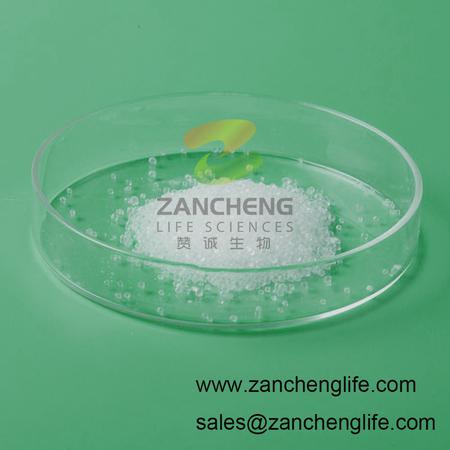What is thymol crystals?
Thymol crystals are a natural compound that has been valued for centuries for its wide range of applications in medicine, food preservation and personal care. Derived from the thyme plant, these aromatic crystals possess potent antimicrobial, antiseptic and soothing properties, making them valuable ingredients in a wide range of products and therapies. In this article, we will explore the origins, properties, uses and benefits of thymol crystals, shedding light on their rich history and their relevance to today's health and wellness industry.
Origin of Thymol Crystals
Thymol is a monocyclic phenol derived from the essential oil of thyme, an herb known for its culinary and medicinal uses. Thymol is one of the main components of thyme oil, which gives the plant its distinctive aroma and many therapeutic properties. Thyme, known botanically as thyme, is native to the Mediterranean region but has been grown and used around the world for centuries. Its aromatic leaves and flowers contain thymol, which can be extracted and crystallised to produce thymol crystals.
Properties of Thymol Crystals
Thymol crystals are known for their remarkable properties, making them versatile and highly sought after. Here are some of their key characteristics:
Antimicrobial and antiseptic: Thymol is known for its powerful antimicrobial and antiseptic properties. It effectively inhibits the growth of a wide range of bacteria, fungi and viruses, making it an important ingredient in disinfectants and oral care products.
Aromatic: Thymol crystals have a pleasant aromatic odour. The scent is reminiscent of thyme and is commonly used to impart a pleasant fragrance in personal care and household products.
Analgesic: Thymol has mild analgesic properties, which means it can help reduce pain and discomfort. It is used in some topical pain relief products.
ANTI-INFLAMMATORY: Thymol has anti-inflammatory properties that help soothe skin irritations and reduce redness. It is often found in skin care products designed for sensitive or inflamed skin.
Expectorant: When inhaled, thymol acts as an expectorant, helping to relieve congestion and promote smooth breathing. It is a common ingredient in over-the-counter cough drops and syrups.
Thymol crystals are usually in the form of white or colourless crystals and its properties make it a valuable ingredient in a wide range of products.
Applications for Thymol Crystals
Thymol crystals are used in a wide variety of applications due to their versatility and beneficial properties. Some of the most common uses include:
Oral care products: Thymol has antiseptic properties and is a key ingredient in mouthwashes, toothpastes and lozenges. It helps fight bad breath, prevent gum disease and soothe throat irritation.
Disinfectants and cleaners: Thymol's antibacterial properties make it an important ingredient in household disinfectants and cleaners. It is effective in killing bacteria and viruses on surfaces.
Personal Care and Perfumery: Thymol crystals are used to impart a pleasant fragrance in perfumes, soaps and cosmetics. Their aromatic qualities add a fresh and energising fragrance to these products.
Topical Pain Relief: Some topical ointments and balms contain thymol to relieve minor aches and pains. Its analgesic properties can help reduce discomfort.
Respiratory aids: Some over-the-counter cold and cough medicines contain thymol. Inhaling its vapour can help relieve nasal congestion and promote smooth breathing.
Food preservation: Thymol has traditionally been used to preserve food. It can help inhibit the growth of mould and bacteria in perishable items, extending their shelf life.
Skin Care: Due to its anti-inflammatory properties, thymol can be used in skin care products to soothe and calm irritated skin. It can help relieve conditions such as acne and eczema.
Agriculture and Pest Control: Thymol is used in agriculture to protect crops and soil from various pests and diseases. Its natural source makes it an environmentally friendly choice for pest control.
Benefits of Thymol Crystals
The widespread use of thymol crystals proves its many benefits. Some of the key benefits of using thymol crystals include:
Natural and Safe: Thymol is a natural compound derived from thyme, making it a safe and environmentally friendly choice for a variety of applications. It is Generally Recognised as Safe (GRAS) by the US Food and Drug Administration (FDA).
Antimicrobial Protection: Thymol's antimicrobial and antiseptic properties are invaluable in promoting health and hygiene. It can help reduce the risk of infection and disease.
Aromatherapy Benefits: The aromatic qualities of Thymol crystals make it ideal for aromatherapy and relaxation. Inhaling the scent of thymol can have a calming and soothing effect on the mind.
SKIN CARE SUPPORT: Thymol's anti-inflammatory properties help maintain healthy, glowing skin. It is especially beneficial for people with sensitive skin or those prone to acne.
PAIN RELIEF: Thymol's analgesic properties provide relief from minor aches and pains, making it an important ingredient in topical pain relief products.
Environmentally friendly: Thymol is a green, sustainable alternative for a variety of applications, including agricultural pest control.
Conclusion
Thymol crystals are derived from the essential oil of the thyme plant and have a rich history of use in a variety of applications over many centuries. Their antimicrobial, antiseptic and soothing properties have made them an important ingredient in many health, wellness and hygiene related products. Whether you use thymol-infused oral care products, enjoy the scent in your perfume, or benefit from its natural healing properties in your skin care products, thymol crystals will continue to play an important role in modern health and wellness. Thymol crystals will continue to be a valuable and environmentally friendly resource for years to come as we move towards more sustainable and natural solutions.


Comments
0